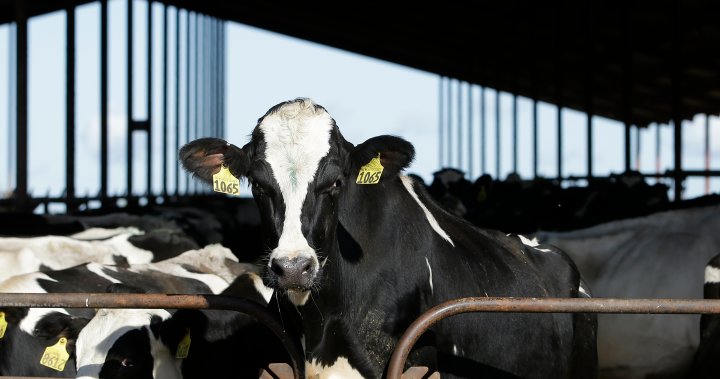Alberta officials continue to monitor the ongoing bird flu outbreak in dairy cows in the United States, with producers advised to closely monitor their herds.
Avian influenza has now been found in herds in 11 U.S. states, including Minnesota and Iowa.
Dr. Keith Lehman, the chief provincial veterinarian with Alberta Agriculture and Irrigation, said it’s vital that dairy producers stay vigilant.
“The biggest thing at this point is really to ensure that our producers have that heightened sense of awareness, that they’re monitoring their herds closely before the disease so that we catch it… as early as possible,” he said
Last month Canada introduced new import requirements requiring lactating dairy cows from the U.S. test negative to bird flu within seven days of export.
So far, no sign of the disease has been found in Canadian cows, and all milk sold in stores must be pasteurized, which has shown to effectively kill the virus.
The latest health and medical news
emailed to you every Sunday.
Lehman said there are a range of options available to dairy farmers to minimize the risks of avian influenza getting into a herd, and then spreading.
“Do things like isolate new animals into their herds and keep them separate for a little while before introducing them to the rest of their herd.”
“We offer testing for this virus if they want to have animals screened ahead of time before they move them, so they can have samples collected from the herd the animals originated from and have them tested before they purchase those animals or bring them into their herds,” said Lehman.
Signs in dairy cattle that could indicate an avian influenza infection include reduced milk production, loss of appetite and thicker milk consistency.
On June 5, the World Health Organization confirmed the first-ever human death caused by a strain of bird flu. The source of exposure to the virus is not currently known.
Lehman said the genetics of influenza viruses are closely monitored to determine if they pose an increased risk to human health.
“There’s always sort of that looming risk that influenza viruses could become greater health risks to people and have the potential to spread from person to person as well. But at this point, fortunately we’re not dealing with that situation”.
— with files from The Canadian Press
© 2024 Global News, a division of Corus Entertainment Inc.




